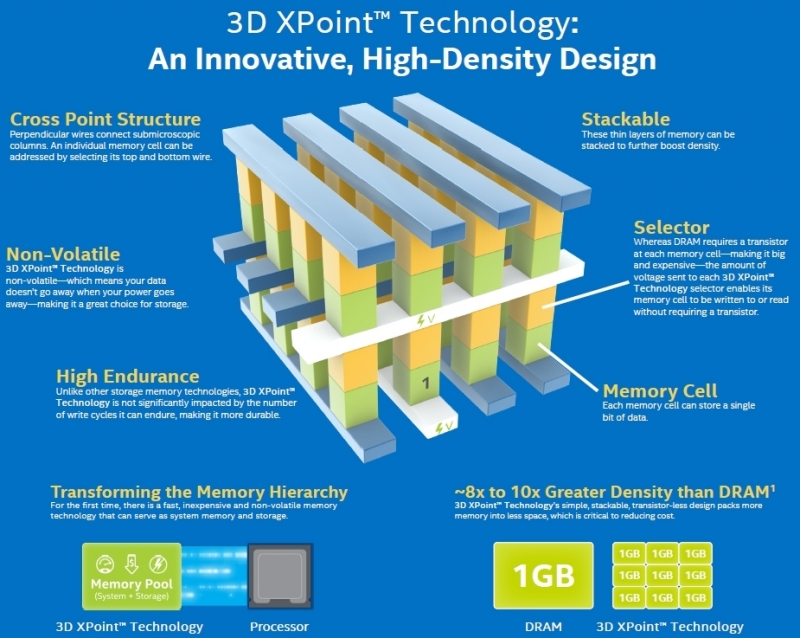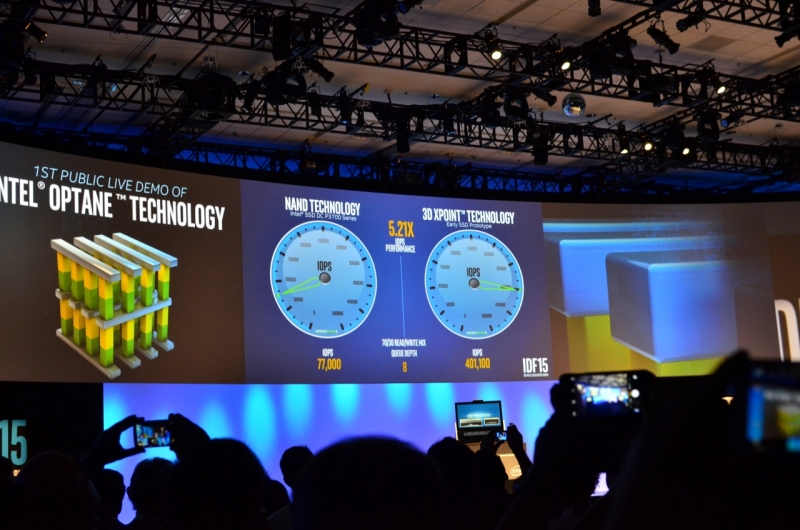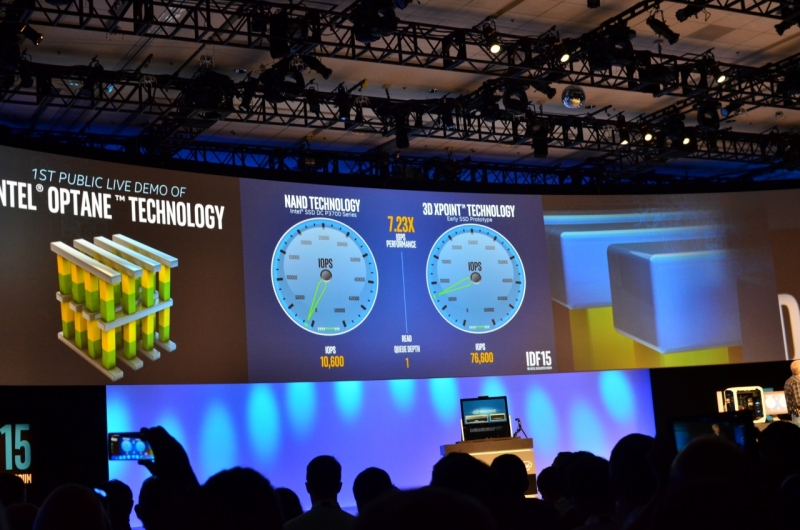
Intel’s annual developer conference / mini trade show kicked off earlier today in San Francisco. Among the topics of discussion during the keynote was 3D XPoint, the new memory technology that Intel announced late last month.
SVP of Intel’s non-volatile memory solutions group, Rob Crooke, gave those in attendance a brief recap of the technology before introducing a new brand based on the technology called Intel Optane (not to be confused with Octane).

The first Optane products will hit the market next year in the form of high-endurance, high-performance Intel solid state drives.
When Intel introduced 3D XPoint last month, it promised the technology would deliver read speeds that are up to 1,000 times faster than today’s NAND chips. At IDF, Intel demonstrated an Optane PCIe solid state drive, pitting it against the company’s current flagship drive.

AnandTech was on hand as the Optane drive outperformed the P3700 series drive by 5.21X (401,100 IOPS versus 77,000 IOPS with a queue depth of eight). With a read queue depth of one, the 3D XPoint-based drive scored 76,600 IOPS compared to the 10,600 IOPS turned in by NAND-based SSD. Unfortunately, that was the extent of Intel's public demo.
The chipmaker also revealed that its new class of memory technology will power a new line of Intel DIMMs for its next-generation data center platforms.
Images courtesy AnandTech
https://www.techspot.com/news/61802-ssds-based-intel-3d-xpoint-technology-arrive-next.html